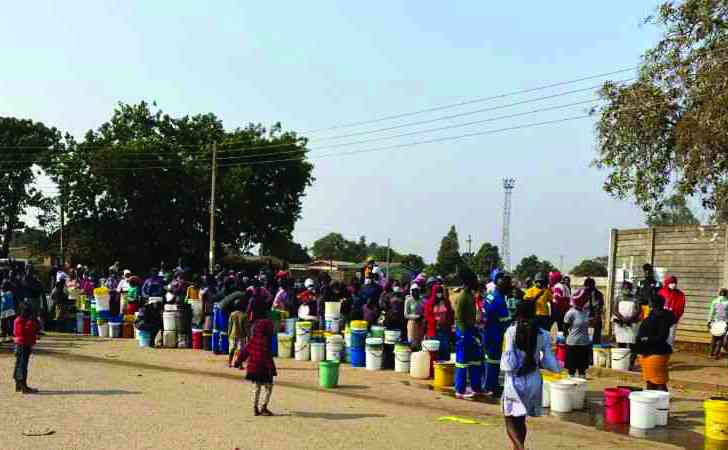
MY heart bled when I saw some unscrupulous men and women ransacking clinics and hospitals in South Africa to weed out what they called foreign nationals.
I have never witnessed such acts of banditry, absurdity and inconsideration.
Such terrorising of foreign patients should not be condoned by any sober-minded person in this world, but by those who use their lungs to reason.
In 2022, Limpopo MEC for Health, Phophi Rhamatuba, was in the Press for the wrong reasons as she berated a Zimbabwean woman who was seeking medical care following a road traffic accident.
The events at Bela-Bela Hospital shocked the entire world, forcing the South African health authorities to institute investigations into the matter.
The World Health Organisation's constitution, specifically Article 1, establishes health as a fundamental human right.
The right to health is recognised without distinction on the basis of race, religion, political beliefs, economic or social condition.
The World Health Organisation also emphasises that governments have a responsibility to provide adequate health and social measures to fulfil the right to health.
- Zim headed for a political dead heat in 2023
- Record breaker Mpofu revisits difficult upbringing
- Tendo Electronics eyes Africa after TelOne deal
- I rejected Zanu PF scarf: Burna Boy
Keep Reading
The Sadc Protocol on Health, adopted in 1999 and in force since 2004, promotes co-operation among member States on health issues, including access to health services.
Fast forward to 2025, foreign patients are mocked, ridiculed, and thrown out of healthcare facilities merely because they are foreigners.
This level of lawlessness in South Africa should never be tolerated and the country’s leadership should not allow the former rainbow nation to be reduced to a banana republic because of a few malcontents who claim to be patriotic citizens of Mzansi.
Patients are plucked out of hospitals in front of cameras and the perpetrators of such cowardly acts are allowed to go scot-free.
Why are such people not getting arrested? If drastic action is taken against such dissidents, including long jail terms, it will act as a deterrent to such villainous acts.
South Africa is a member of Sadc and for the regional body to succeed on health-related matters, there should be robust co-operation among member States.
It is thus imperative for South Africa to work in cahoots with all member States and it all starts with putting its citizens in line.
Health and development are symbiotic in nature, as a healthy population is a catalyst for economic and social development.
As southern Africa improves its industrial capacity and economy, the health of its citizens remains paramount in ensuring a sustainable future.
The goal to achieve universal health coverage is traced to 1997 when the Sadc Health Programme was developed in line with global and regional declarations and targets.
Three key policy documents were developed to underpin the implementation of the programme and these included the Health Policy Framework, the Sadc Protocol on Health and the Regional Indicative Strategic Development Plan.
The Sadc Health Policy envisages the raising of the regional standards of health for all citizens to a desired and acceptable level by promoting, coordinating and supporting efforts of member States to improve access to high-impact health interventions.
The framework was approved by the Sadc council of ministers in September 2000 with great emphasis placed on health research and surveillance, health information systems, health education and promotion, communicable and non-communicable disease control, reproductive health, nutrition and food security, violence and substance abuse, among others.
The Protocol on Health was approved in 1999 but was effected in 2004.
The protocol promotes co-operation among member States on key health issues. It recognises that this co-operation is essential for the control of communicable and non-communicable diseases and for addressing common health concerns, including emergency health services, disaster management and acquisition of bulky essential drugs.
Article 9 of the Sadc Health Protocol addresses communicable disease control, like the deadly COVID-19, while articles 10 to 12 look specifically at HIV and Aids, malaria and tuberculosis.
Article 10 requires that member States shall co-operate to harmonise and standardise policies in the areas of case definitions for diseases, notification systems, treatment and management of major communicable diseases, and share information related to outbreaks and epidemics of communicable diseases.
Let's all stand against the ill- treatment of foreign nationals in South African hospitals.
The barbaric behaviour by the so-called activists should attract the stiffest punishment in competent courts of law.
Johannes Marisa is a medical practitioner who is the current president of the Medical and Dental Private Practitioners Association of Zimbabwe.










